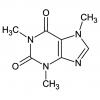FAQ: Can I use ______ to clean my PC components? The go-to answer.
-
Topics
-
BallinBonobo ·
Posted in Troubleshooting0 -
0
-
0
-
runningdecoy ·
Posted in Troubleshooting0 -
2
-
joshp305 ·
Posted in New Builds and Planning1 -
3
-
4
-
Inception9269 ·
Posted in PC Gaming0 -
1
-
-
play_circle_filled

Latest From Linus Tech Tips:
The BRIGHTEST Monitor We've EVER Seen - Sun Vision rE rLCD Display
-
play_circle_filled

Latest From ShortCircuit:
The World's Fastest CPU (Technically...) - Intel i9-14900KS













Create an account or sign in to comment
You need to be a member in order to leave a comment
Create an account
Sign up for a new account in our community. It's easy!
Register a new accountSign in
Already have an account? Sign in here.
Sign In Now